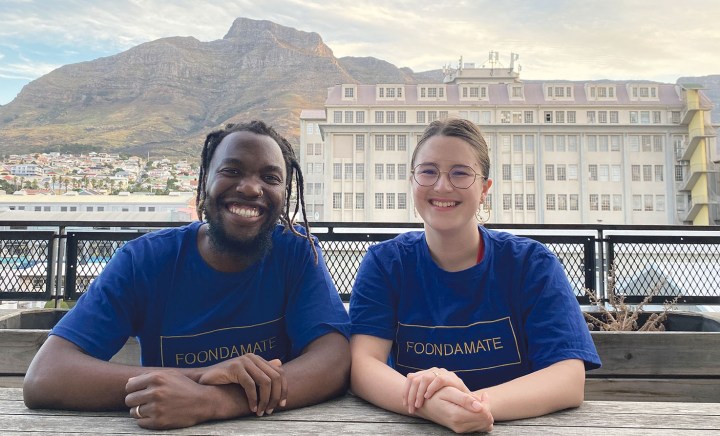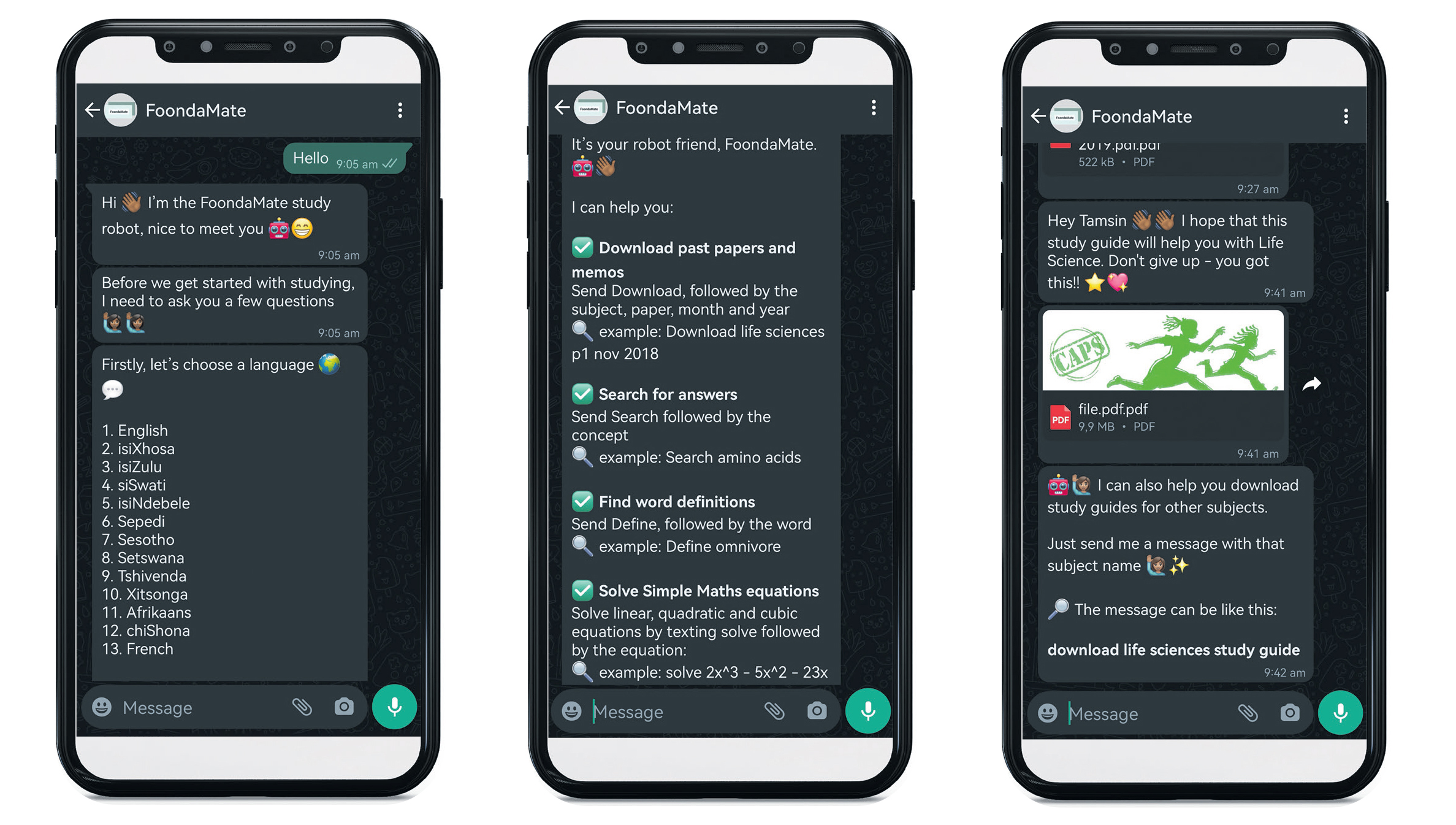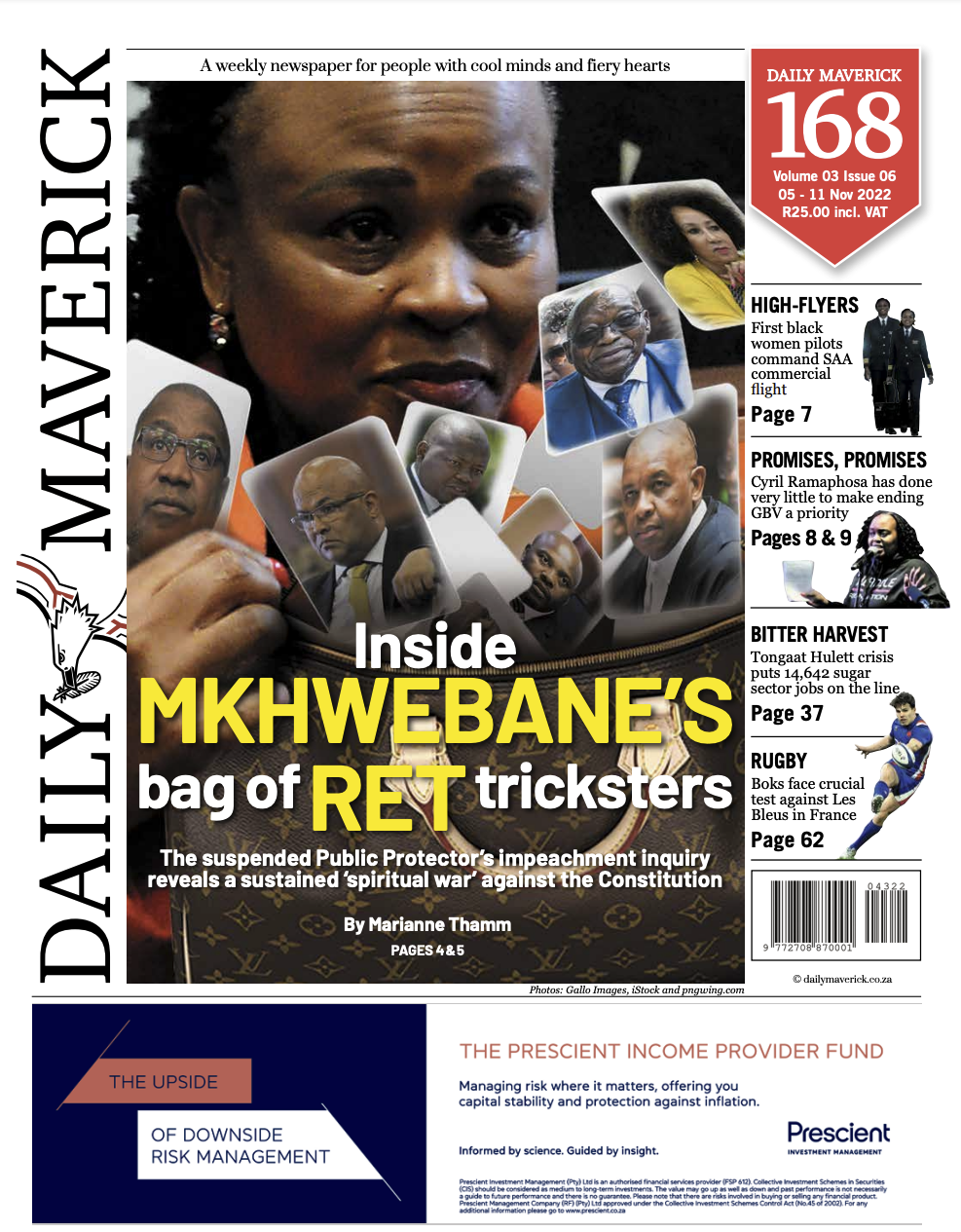DIGITAL LEARNING
Virtual study buddy FoondaMate making the grade for high school students

The app developers received $50,000 from a start-up funding programme in April 2021, and secured a further $2-million in seed funding in December 2021. The platform has since launched in South Africa, Nigeria and Indonesia.
Two young South Africans are pioneering a way of increasing access to learning materials for high school students. Dacod Magagula and Tao Boyle are the minds behind FoondaMate — a “robot study buddy” that operates via the WhatsApp messaging service.
The FoondaMate platform is free to use and is available in 13 languages, including the 11 official languages of South Africa. Users can access past exam papers, study guides and concept definitions by sending message prompts such as “Download life sciences paper 1, November 2019” or “Define eukaryotic”. The platform can also assist in the solving of simple maths equations.
“We would like [FoondaMate] to be everyone’s go-to sidekick, study buddy, friend, and make it helpful for anyone from anywhere,” said Boyle, on the drive behind the educational technology start-up. “We would like to make sure that we can solve any kind of high-school academic problem.”
Creating FoondaMate
Magagula was inspired to create the FoondaMate platform as a result of his own schooling experience. Growing up in a rural township in Nelspruit, Mpumalanga, he and his classmates had limited access to textbooks.
In matric, Magagula was the only pupil at his school with access to a computer, as he and his brother had worked together to save for one. He used it to download past papers and free study guides.
“I ended up graduating top of my class. I got the best marks in the history of the school and was the first … [at] the school to get accepted to UCT [the University of Cape Town], where I did computer science,” he said.

The FoondaMate platform is free to use and is available in 13 languages. (Photo: Tao Boyle/Supplied)
“Fast-forward five years into my software engineering career, WhatsApp opened up its [application programming interface]. I thought it would be really great to enable people in the same position as my past class … to access past [exam] papers.”
In 2020, Magagula created a WhatsApp number through which matric pupils at his old school could download past papers. He later partnered with Boyle, an economics student at UCT with an interest in scalable solutions to inequalities in education, and together they expanded the platform.
Visit Daily Maverick’s home page for more news, analysis and investigations
“Students all over South Africa started using it. Obviously, that then led to a lot of interest from grades other than matric. So, we then had to expand to Grade 10 and Grade 11,” Boyle told DM168.
FoondaMate received $50,000 from a start-up funding programme in April 2021, and secured a further $2-million in seed funding in December 2021, according to Magagula. The platform has since launched in Nigeria and Indonesia as well as SA, and has surpassed 900,000 users.
“In the last 12 months, six million matric papers have been downloaded on FoondaMate, and 14 million searches have been [made],” said Boyle.
Although the FoondaMate team is focused on strengthening the platform and building usership, work has also been done to develop the income-generating side of their business model, said Magagula.
Many pupils ask FoondaMate questions such as “How do I apply to university?” and “What universities can I apply for if I got these grades?” The team, therefore, aims to build partnerships with bodies such as universities that can use the platform to provide well-informed responses.
“You need to make sure that what you are giving the student is valuable to them,” said Boyle. “We spent a lot of time running different types of tests, seeing what kind of organisation can actually deliver value to users.”
Mmathapelo Monomane, a first-year commerce student at the University of Pretoria, told DM168 she enjoyed using FoondaMate for her matric studies, as it felt like she was “speaking to a real person”.
“The engagement for me was really, really great,” she said. “I used it for question papers… Previous [exam] papers are very difficult to get, in terms of accounting and physics and maths.”
Although there is also a Facebook Messenger version of FoondaMate, the WhatsApp platform has been more popular among school pupils, according to Boyle.
“I think that’s partly because [WhatsApp] is a part of students’ social stack. People are already using it to contact their friends, and so FoondaMate just becomes another one of their friends that they are messaging. It’s easy to embed for a lot of students.” DM168
This story first appeared in our weekly Daily Maverick 168 newspaper, which is available countrywide for R25.





















 Become an Insider
Become an Insider
Comments - Please login in order to comment.